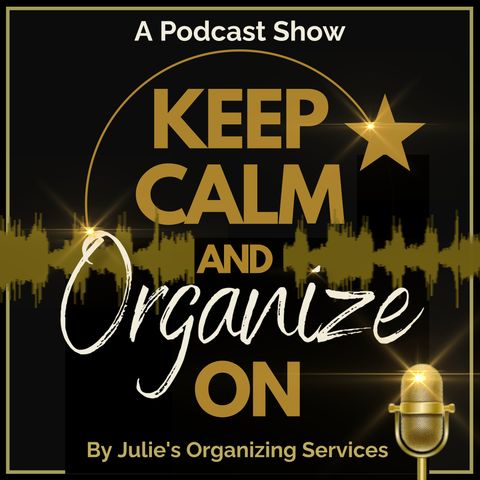What Is Neurodivergent Potential: Strengths Based Learning

Sign up for free
Listen to this episode and many more. Enjoy the best podcasts on Spreaker!
Download and listen anywhere
Download your favorite episodes and enjoy them, wherever you are! Sign up or log in now to access offline listening.
Description
In our latest podcast episode, we delve into the fascinating world of neurodiversity and strengths-based learning. Hosted by professional organizer Julie Witherell and podcast producer Scott Squires, this episode is...
show moreJulie starts by breaking down the terms "neurodivergent" and "neurotypical." Neurodivergent individuals process information differently from their neurotypical peers. This diversity in thought and processing is not a deficit but rather a different way of thinking that can bring unique strengths to the table. Julie emphasizes that embracing neurodiversity means practicing inclusion for everyone.
The conversation then shifts to the potential strengths of neurodivergent individuals. Julie highlights that everyone has a unique set of skills that can be utilized in different ways and at different times. This strengths-based approach focuses on what individuals can do rather than what they can't. For example, individuals with ADHD may have heightened creativity and hyperfocus, while those on the autism spectrum might excel in systemizing and detail-oriented tasks.
Scott adds that understanding these unique strengths is crucial, especially in a work environment. Companies are increasingly adopting diversity, equity, and inclusion (DEI) training, and some are even incorporating neuro-affirming practices. These initiatives aim to create supportive environments where everyone can thrive.
Julie also shares her personal journey as a neurodivergent individual and a professional organizer. She discusses the various certifications and training she has undergone to better understand and support her clients. From mental health first aid to trauma-informed care, Julie's comprehensive approach ensures that she can meet the diverse needs of her clients.
The episode also offers practical tips for creating inclusive environments. Simple adaptations like adjusting lighting, reducing visual clutter, and providing written instructions can make a significant difference. Julie stresses the importance of asking for preferences and avoiding assumptions to ensure that everyone feels comfortable and supported.
One of the most compelling parts of the episode is when Julie talks about the grassroots origins of the neurodiversity movement. Started by autistic sociologist Judy Singer in the late 1990s, the movement has grown to include individuals with various neurological conditions. It aims to shift the focus from deficits to strengths, advocating for a more inclusive society.
If you're interested in learning more about neurodiversity and how to apply strengths-based learning in your life, this episode is a must-listen. Julie and Scott provide a wealth of information and practical advice that can help you create more inclusive and supportive environments, whether at home or in the workplace.
Tune in to this enlightening episode and discover how embracing neurodiversity can unlock a world of potential.
Information
| Author | Firm Foundation Media |
| Organization | FFM Audio Network |
| Website | - |
| Tags |
Copyright 2024 - Spreaker Inc. an iHeartMedia Company
